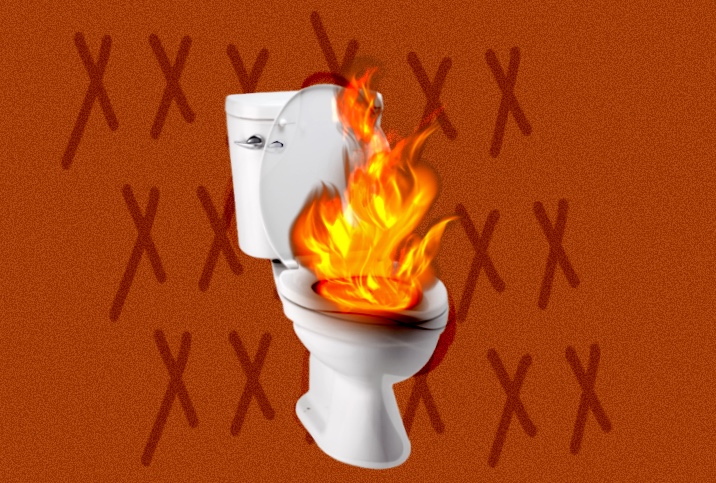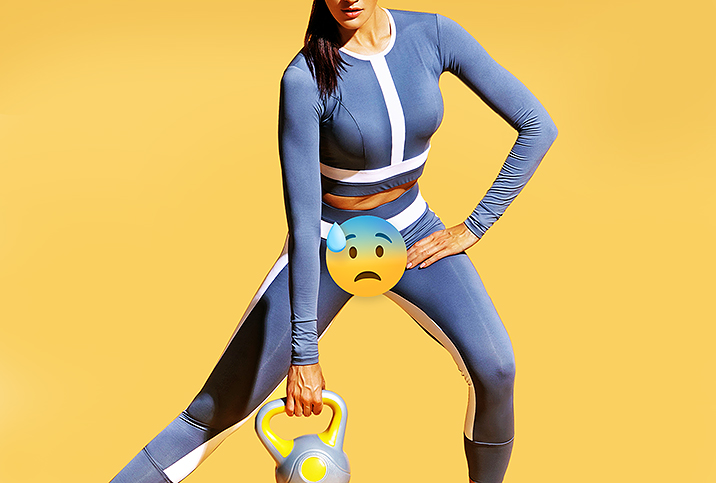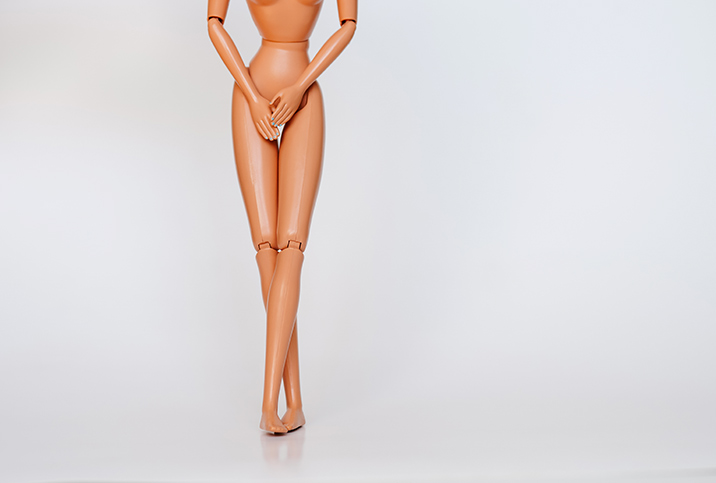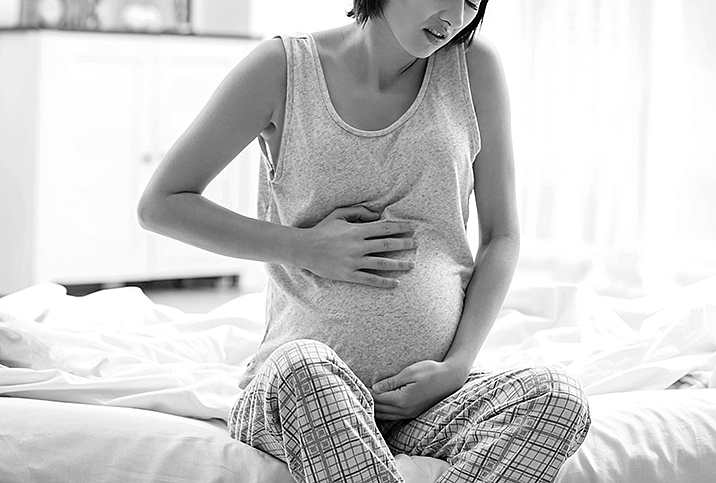Why Does It Burn When You Pee? 8 Potential Causes

The uncomfortable experience of painful urination, or dysuria, is more common in women than in men. The reasons you may experience a burning sensation while peeing are many.
Why does it burn when I pee?
Dysuria is a symptom and not a diagnosis, but pregnant women and people with diabetes or any bladder-related diseases are at higher risk of developing it.
Other symptoms of dysuria include stinging or itching, more commonly at the start of urination though it can also happen afterward.
Urinary tract infections (UTI) can be responsible for the burning sensation when you pee—as well as for internal pain—but stinging after urination might be a sign of a bladder issue. Inflammation or skin irritation can cause pain on the vulva, the area outside the vagina.
Read on to discover eight common reasons behind painful urination.
1. Urinary tract infection
UTIs can affect the entire urinary tract—the urethra, bladder, ureters and kidneys—and are caused by a buildup of bacteria. When bacteria track up to the kidneys, the ascending bladder infection can cause a serious kidney infection called pyelonephritis.
Women are more prone to UTIs because their urethras are shorter than men's. If it burns when you pee, it's important to talk to your doctor about your symptoms.
"The main symptoms [of UTIs] are frequency of urination; pain during passing urine [dysuria]; cloudy, smelly urine; and abdominal pain and back pain. The mainstay of treatment is antibiotics based on which bacteria are grown from cultures," said Zahra Ameen, M.B.B.S., a consultant OB-GYN at Cadogan Clinic in London.
2. Interstitial cystitis
Interstitial cystitis (IC), also known as painful bladder syndrome, is defined as the chronic inflammation or irritation of the bladder for six weeks or more without any underlying infection in the urine, Ameen explained.
It's diagnosed and treated primarily by urologists and some urogynecologists.
Treatments can include:
- Over-the-counter pain relievers, such as paracetamol and ibuprofen
- Prescription-only medications to treat nerve pain, such as amitriptyline, gabapentin and pregabalin
- Bladder instillations or a bladder wash/bath, where treatments such as local anesthetics and steroids are passed directly into the bladder via a catheter
3. Large ovarian cysts
Small functional or hemorrhagic ovarian cysts usually resolve on their own within six weeks after a period. Ameen noted, however, that larger ovarian cysts can put pressure on the bladder and cause pain during urination.
If the cyst is bigger than 6 centimeters, it may require keyhole surgery (laparoscopy).
4. Thrush or yeast infection
"The vaginal microbiome constantly undergoes fluctuations during a woman's life," Ameen said. "Lactobacillus has a very important role in protecting women from an overgrowth of other types of bacteria and organisms which can cause unpleasant symptoms, for example, smelly discharge caused by thrush and bacterial vaginosis [BV].
"Lactobacilli are the most abundant vaginal bacteria in women, producing lactic acid to maintain the vaginal pH at a stable 3.5 to 4.5," she continued. "However, if the pH of the vagina increases, causing it to become more alkaline, the quality or amount of lactobacilli can decrease, allowing other bacteria to multiply."
A yeast infection, also called thrush, results from an overgrowth of a bacteria named Candida albicans. It's a common condition that can cause a slight burn when you urinate.
Treatments for thrush include antifungals, such as oral tablets, topical creams and vaginal pessaries; wearing loose-fitting, cotton underwear; and changing pants several times a day.
5. Sexually transmitted infections (STIs) and diseases (STDs)
STIs and STDs, such as chlamydia, gonorrhea and herpes, can all lead to discomfort during urination and chronic pelvic pain, Ameen said.
The usual treatment is antibiotics. It's important that infections are treated as soon as possible, before long-term complications such as pelvic pain and fertility issues arise, Ameen stated.
6. Bladder and renal (kidney) stones
Bladder and renal stones are mineralized stones that form in the bladder and kidneys, explained Kecia Gaither, M.D., a board-certified OB-GYN and maternal-fetal medicine expert in the Bronx, New York.
"[They occur] when the minerals in concentrated urine crystallize and form stones," she said.
The condition might require lithotripsy, a procedure where sound waves break up the stones so they can be passed in the urine.
Ameen said the luckier ones might be able to pass the stones within one to two days with the following tips:
- Drink plenty of fluids
- Take an antiemetic (anti-nausea medication)
- Take alpha blockers (medication to help stones pass)
7. Soaps and bubble baths
Gaither noted that hygiene products such as soaps and bubble baths that can cause skin irritation (dermatitis) in the genital area could lead to painful urination. When this happens, it's treated with steroid therapy.
Doctors recommend women avoid scented products, vaginal "cleansers" or sprays, and douching, as they can lead to vulvar irritation for some people or make preexisting symptoms worse. Remember, your vulva should only be cleaned with a mild, unscented soap, and your vagina is self-cleaning.
8. Vaginal atrophy in postmenopausal women
"If you are suffering with persistent urinary infections or cystitis-type symptoms, you could be struggling with vaginal atrophy, one of the key symptoms of the genitourinary syndrome of menopause [GSM]," Ameen said. "Like vaginal dryness, this is also caused by a lack of estrogen in your genitourinary tract, and this causes symptoms in more than 50 percent of menopausal women."
GSM is an underdiagnosed and undertreated chronic and progressive syndrome, she continued, and symptoms do not settle over time since the tissues in the vulva and vagina continue to lose collagen and elastin.
The most common symptoms women report include a loss of lubrication, abnormal vaginal bleeding and discharge, difficulty emptying the bladder, stress incontinence, and a sensation of burning or irritation of the vulvar area.
"The best treatment for this is vaginal estrogen [therapy]…which can be obtained on prescription from your GP or gynecologist," Ameen said, adding that some women also find vaginal lubricants helpful.
How do you know what causes burning when you pee?
It's not normal to experience burning when you urinate. If you experience a stinging or burning sensation, it's important to find out the cause. Speak with your doctor and discuss your symptoms so you can find relief.


















